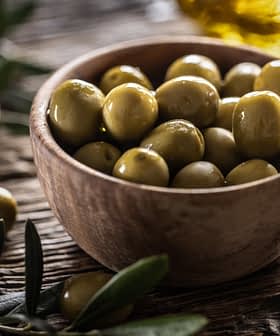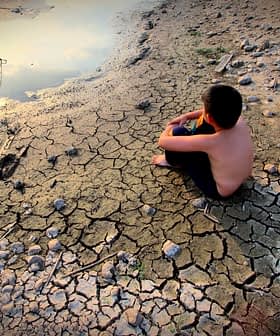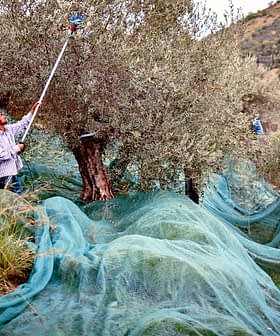In Molise, Olive Tree Adoption Supports Health Research
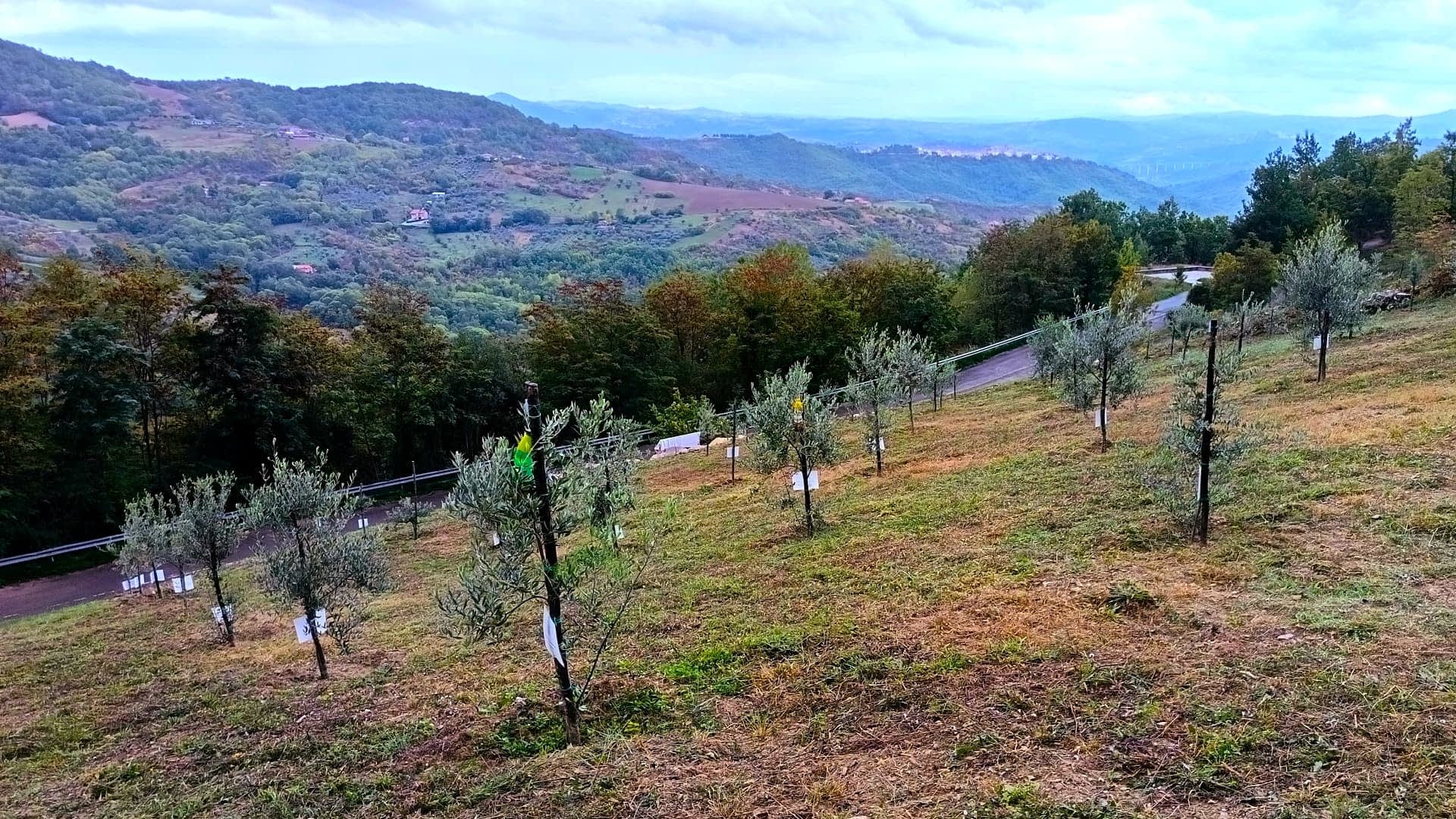
In the Italian village of Agnone, Uliveto Gianna allows visitors to adopt olive trees to support health research, with donations going towards medical research associations. The project, started by Orazio Ferrelli in memory of his late wife Gianna, has grown to include multiple olive trees and has garnered interest from various countries.
Nestled on the rolling hills of Agnone, a picturesque village in the central-southern Italian region of Molise, Uliveto Gianna (Gianna olive grove) offers visitors the opportunity to adopt an olive tree while supporting health research.
“This project was born when I decided to plant a number of olive trees corresponding to the years I spent with my wife Gianna since we got engaged,” Orazio Ferrelli told Olive Oil Times. “She had recently passed away, and I wanted to do something meaningful to pay homage to her.”
With the help of his brother Antonio, Ferrelli planted 26 young olive seedlings in an uncultivated plot of land belonging to their family, and he put them up for adoption.
See Also:Rehabilitating Olive Trees in Aragón to Stem Spain’s Rural Exodus“I wanted to allow people, especially those who do not live in the countryside, to adopt these plants and enjoy them whenever they want,” Ferrelli said. “In exchange, I would ask for something very valuable: a donation to health research.”
A contribution of any amount supporting an association or organization focused on medical research is the price of adopting a young olive tree in the orchard.
“I do not need the donation receipt, as I am a ‘mountain man’ and I take people’s word for it,” Ferrelli said.
He specified that the aspiring adopters can contact Uliveto Gianna on Instagram to communicate their donation and the association they choose to support. They are then invited to visit the orchard and leave a message, which will be written on a sign near their olive tree.
Launched as a small initiative for friends and colleagues, it has generated buzz and interest in the local community and from media outlets. Impressed by the success of his project, Ferrelli is receiving adoption requests from all over Italy and other countries, including the United Kingdom and Germany.
This prompted him to add more olive trees – 70 were recently planted, and 100 more will be planted in the coming months. Depending on the number of new adoption requests, a further plot might be added to the plan. The trees are supposed to start producing fruit in four or five years.
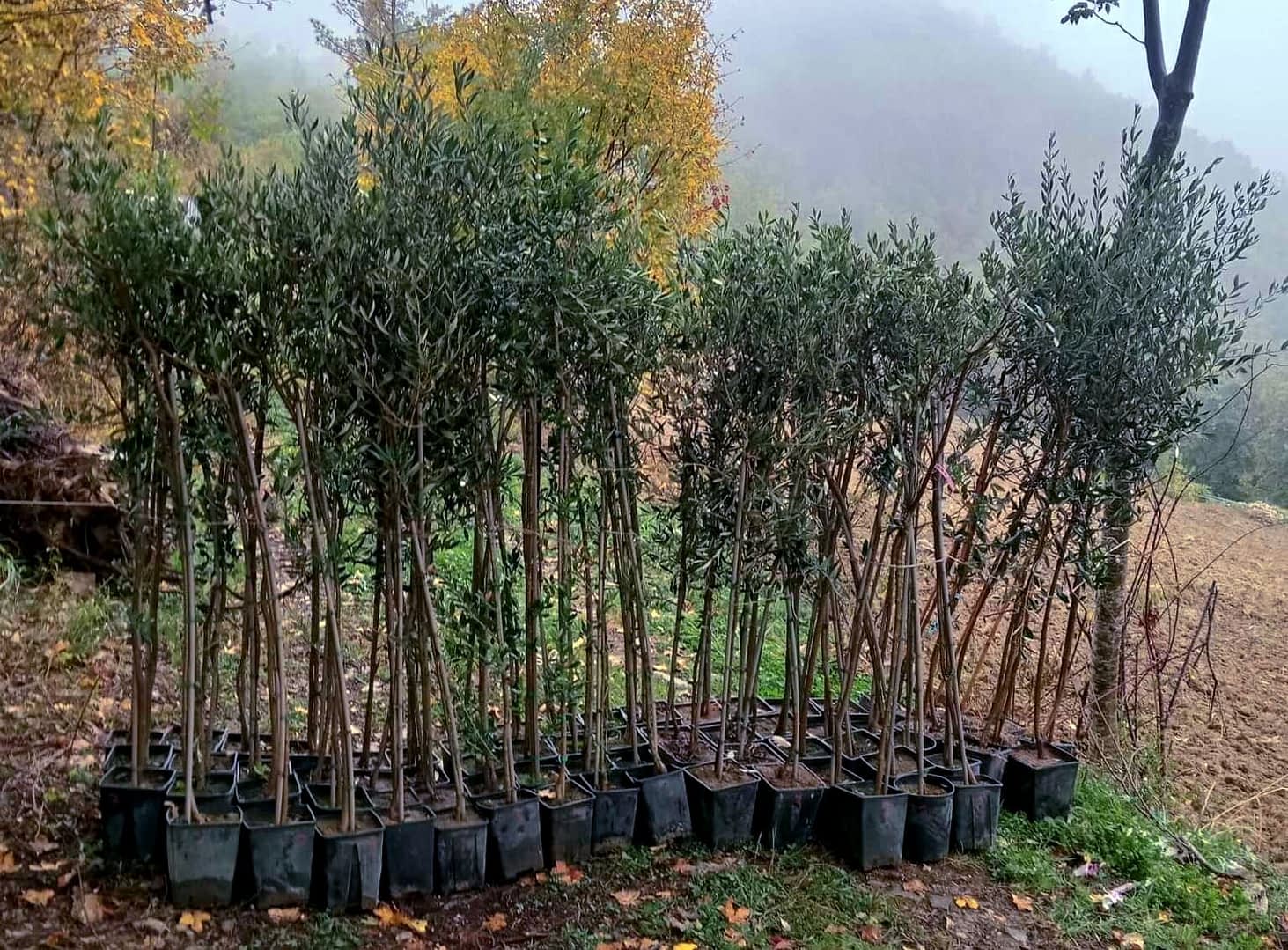
Seventy young olive trees were recently planted at Uliveto Gianna. (Photo: Orazio Ferrelli)
“Now I can say that the extra virgin olive oil produced will be used by our family and as a gift,” Ferrelli said. “At the moment, I cannot afford to hire people to bottle the olive oil. In any case, this initiative will never have commercial purposes, and it must remain non-profit, with the only goal of supporting health research and promoting prevention.”
“Indeed, I could plant other types of fruit trees, but I opted for the olive tree for what it represents for all the peoples,” he added. “In all cultures, it symbolizes important values that I want to communicate with this project, like peace, eternal love, friendship and rebirth.”
Last October, Breast Cancer Awareness Month, a pink bench was placed in a panoramic area of the olive grove as a reminder of the importance of prevention. It will be the arrival point of a walk that Ferrelli is planning to organize next year as a further way to raise awareness and support research.
“I can go on with this project thanks to my two daughters, who have supported me ever since I conceived it,” he said. “However, I must say that I couldn’t have done any of this without the fundamental help of my brother, who takes care of the orchard at a practical level all year around. This land belonged to our parents, who made many sacrifices for us, and this is also a way to thank them.”
The strong bond to his land includes safeguarding the environment and biodiversity while preserving natural resources.
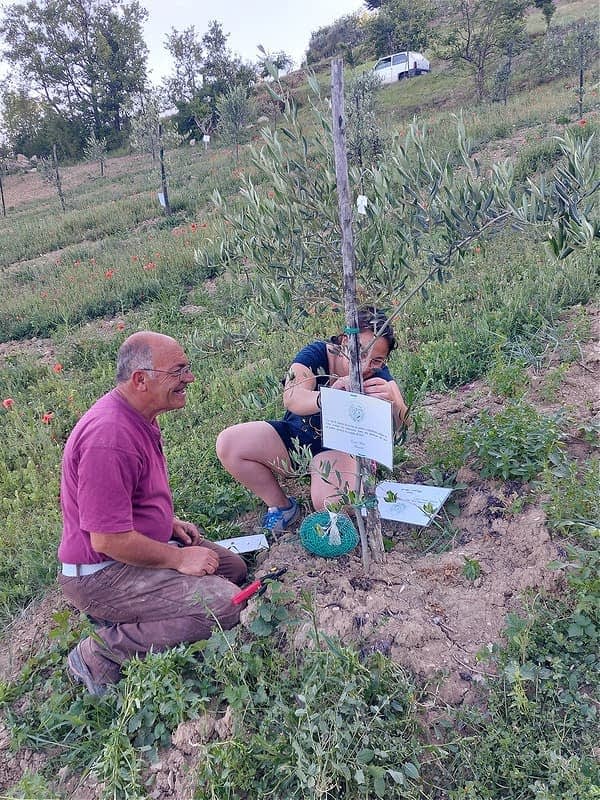
Each olive tree adoption at Uliveto Gianna is marked by a sign with a message from the adopter. (Photo: Orazio Ferrelli)
Gianna olive grove is made up of trees belonging to autochthonous varieties, including Bella di Montagna and Sperone di Gallo, and others that are widespread in the whole of central Italy, such as Leccino, Frantoio, Pendolino Olivastro and Leccio del Corno.
The trees are sustainably managed, fertilized with organic products and, in the warmest months, watered through a rainwater collection system.
“The signs indicating the adoptions beside the olive trees tell many different stories, which include more or less happy moments, all marked by love,” Ferrelli said. “The beautiful thing we are doing here with all the people that adopt the olive trees is being proactive and committed, doing something good to improve the world.”
“Despite the difficult times we faced, we did not give up, and we decided to move forward together, looking ahead at a future with the colors of the rainbow,” he concluded.


